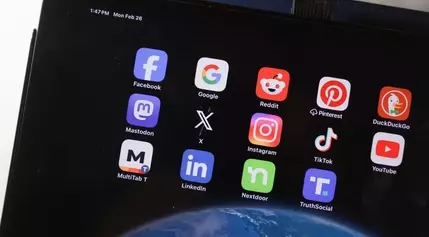Two major tech industry associations, the Computer & Communications Industry Association (CCIA) and NetChoice, have filed a lawsuit to challenge a new Florida law that aims to restrict children's access to social media platforms. The law, known as HB3, would prohibit children under the age of 14 from maintaining social media accounts and require parental permission for 14- and 15-year-olds to create accounts on platforms that use "addictive features." The industry groups argue that the law violates the First Amendment and is too vague in its definition of a social media platform.Safeguarding Children or Infringing on Digital Rights?
The Crux of the Legal Battle
The lawsuit filed by CCIA and NetChoice in the U.S. District Court of the Northern District of Florida names Attorney General Ashley Moody as the defendant. The industry groups claim that the law infringes on the First Amendment rights of both minors and adults by creating significant barriers to accessing online information. They argue that the law's definition of a social media platform is too vague, and it contradicts federal statute.
Protecting Children or Stifling Digital Freedoms?
The law, set to take effect on January 1, 2024, aims to protect children from the potential harms of social media, such as addiction and exposure to inappropriate content. However, the tech industry groups contend that the far better approach is to empower parents with the information and tools they need to shield their children from unsuitable content, as digital service providers have already done for decades.
The Potential Consequences
The law would open the companies to lawsuits from the state, with the potential for fines of up to ,000 per violation, as well as from parents seeking up to ,000 in damages. This legal threat could have significant financial and operational implications for the tech giants involved, potentially forcing them to reevaluate their strategies and policies regarding minors' access to their platforms.
A Clash of Priorities
The passage of the law was a top priority for Florida House Speaker Paul Renner during the legislative session. While many Democrats opposed the bill, it garnered bipartisan support, with St. Petersburg Democratic House member Michele Rayner serving as a co-sponsor.
The Broader Context
This legal battle is part of a larger ongoing debate over the regulation of social media platforms and the balance between protecting children's well-being and preserving digital freedoms. The U.S. Supreme Court has previously weighed in on a similar dispute between Florida and tech groups over a 2021 law prohibiting social media platforms from removing a political candidate's account, with the court ruling that the First Amendment does not allow the government to stop private actors from preferring some views over others.
The Potential Implications
The outcome of this lawsuit could have far-reaching implications for the regulation of social media platforms and the rights of minors to access online content. The case will likely be closely watched by policymakers, legal experts, and the tech industry as they navigate the complex and evolving landscape of digital privacy and safety.

